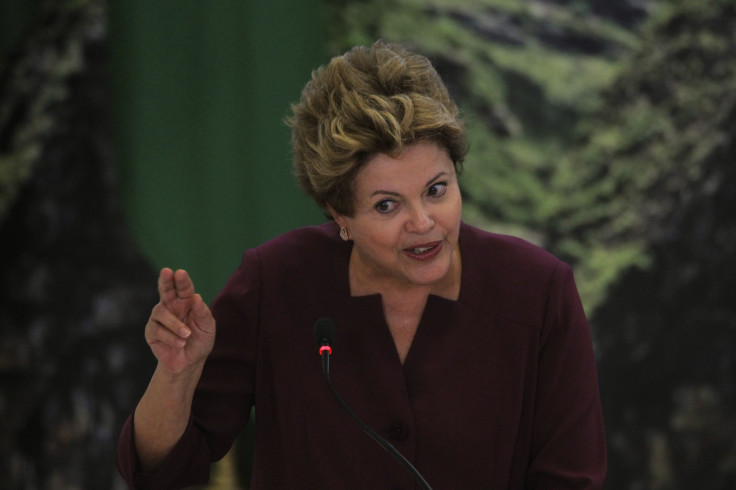Brazilian President Dilma Rousseff Expresses Support For Protesters

Brazilian President Dilma Rousseff expressed her sympathy Tuesday for the spirit of the mass protests that swept across the country this week. Though she called for calm, she pledged that her administration would listen to protesters’ grievances.
According to Reuters, Rousseff appeared in Brasilia to deliver her first public remarks since Monday night’s huge demonstrations. Once an underground leftist fighter and political prisoner under the military dictatorship, she acknowledged the people's grievances and stated that her administration has heard to the calls for an increased government focus on health care and an end to corruption.
"Brazil woke up stronger today," the president said Tuesday. "The size of yesterday's demonstrations shows the energy of our democracy, the strength of the voice of the streets and the civility of our population."
On Monday night, more than 200,000 people took to the streets across the country in a wave of demonstrations the BBC calls the largest Brazil has seen since 1992. Streets were blocked in major cities like Sao Paulo, Rio de Janeiro and Belo Horizonte. In the capital city of Brasilia, protesters stormed the Brazilian Congress building after climbing on to its roof to gain access.
By and large, the protests were peaceful, though some protesters in Rio de Janeiro reportedly threw rocks at police and defaced government buildings.
"My government hears the voices clamoring for change, my government is committed to social transformation," Rousseff said in response. "Those who took to the streets yesterday sent a clear message to all of society, above all to political leaders at all levels of government."
The Brazilian protests began last week as a result of bus fare hikes in Sao Paulo. As the peaceful demonstrations grew, police began cracking down violently. After police broke up a 5,000-person march on Sunday by firing rubber bullets into the crowd and using mace, multitudes turned out on Monday night to call for widespread reforms across the South American country.
Currently, there is no single unified cause uniting the movement. Corruption, crime and the economy are all issues. Next year's World Cup has been a focus of anger. Many are upset that the Brazilian government has spent large sums of money promoting the World Cup while the nation’s economy continues to stagnate.
The protests were not confined to the streets. On Monday, Brazilian Anonymous members rerouted the country’s World Cup website to video footage of the protests, and several more hacktivists hijacked other government websites for similar purposes.
© Copyright IBTimes 2024. All rights reserved.




















